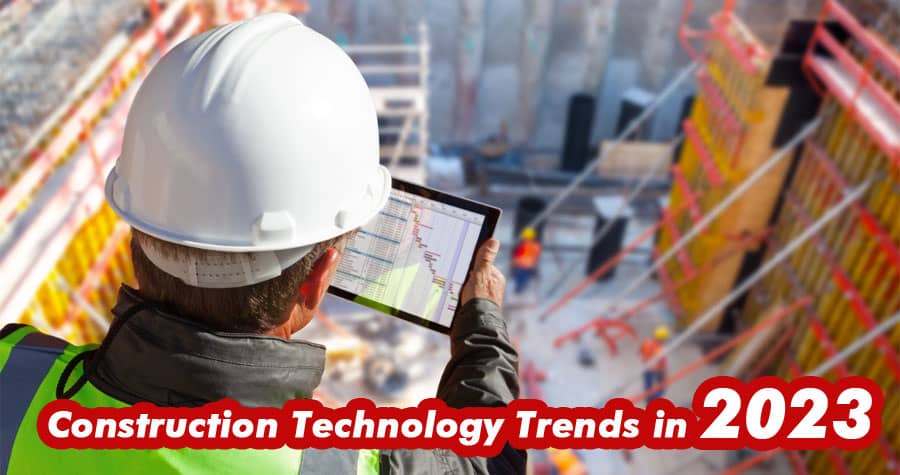Top 10 Picks for Construction Technology Trends in 2023

In the fast-paced world of construction, technology is evolving at an astonishing rate, reshaping the industry in unprecedented ways. As we step into 2023, the construction sector is poised to undergo a technological revolution like never before.
Artificial Intelligence and Machine Learning in Project Management
Artificial Intelligence (AI) and Machine Learning (ML) are making waves in construction project management. These technologies help analyze data, predict potential delays, optimize schedules, and even automate routine tasks, reducing human errors and improving overall project efficiency.
Drones for Site Inspections
Drones have become indispensable tools for construction site inspections. They provide aerial views, monitor progress, and conduct surveys with precision. In 2023, expect to see more advanced drones equipped with LiDAR technology for accurate 3D mapping.
Augmented Reality (AR) for Design Visualization
Augmented Reality is transforming the design phase. Architects and builders can now use AR to visualize structures in real-time, making adjustments and identifying potential issues before construction begins, saving time and resources.
Building Information Modeling (BIM) Advancements
BIM continues to evolve, allowing construction professionals to create detailed 3D models that incorporate data on materials, costs, and timelines. In 2023, BIM will play a crucial role in streamlining collaboration among stakeholders.
Robotics for Labor-Intensive Tasks
Robots are entering the construction workforce to handle repetitive and labor-intensive tasks, such as bricklaying and concrete pouring. These automated systems increase efficiency while reducing the risk of workplace injuries.
Green Building Technologies
Sustainability is a top priority in 2023. Green building technologies, including solar panels, energy-efficient HVAC systems, and smart building management, are becoming standard features in construction projects, helping reduce environmental impact.
Internet of Things (IoT) for Smart Construction Sites
IoT sensors and devices are transforming construction sites into smart, interconnected environments. They collect real-time data on equipment usage, safety conditions, and material inventory, improving decision-making and site management.
5G Connectivity for Real-Time Communication
The rollout of 5G networks is set to revolutionize communication on construction sites. Real-time video streaming, instant data transfer, and remote project monitoring will become seamless, enhancing collaboration and efficiency.
Modular and Prefabricated Construction
Modular and prefabricated construction methods are gaining popularity due to their speed and cost-effectiveness. In 2023, we can expect more innovative approaches, including 3D printing of building components.
Construction Software Integration
Integrated construction software platforms are simplifying project management, from budgeting and scheduling to resource allocation. This trend is set to continue, ensuring smoother workflows and more successful project outcomes.
In Conclusion
The construction industry is at the brink of a technological revolution in 2023, and these trends are driving the transformation. From AI-powered project management to sustainable building practices, these advancements promise a more efficient, sustainable, and innovative construction sector.
Frequently Asked Questions
How will AI and ML impact construction project timelines?
AI and ML can predict delays and optimize schedules, potentially reducing project timelines.
Are drones cost-effective for small construction projects?
Drones can be cost-effective for small projects by reducing the need for manual inspections.
What are the benefits of using AR in construction design?
AR allows real-time visualization, helping identify design issues early and saving costs.
How can IoT sensors improve safety on construction sites?
IoT sensors can monitor safety conditions and alert workers to potential hazards, enhancing site safety.
What are the key advantages of modular construction methods?
Modular construction is faster, more cost-effective, and allows for greater precision in building components.
